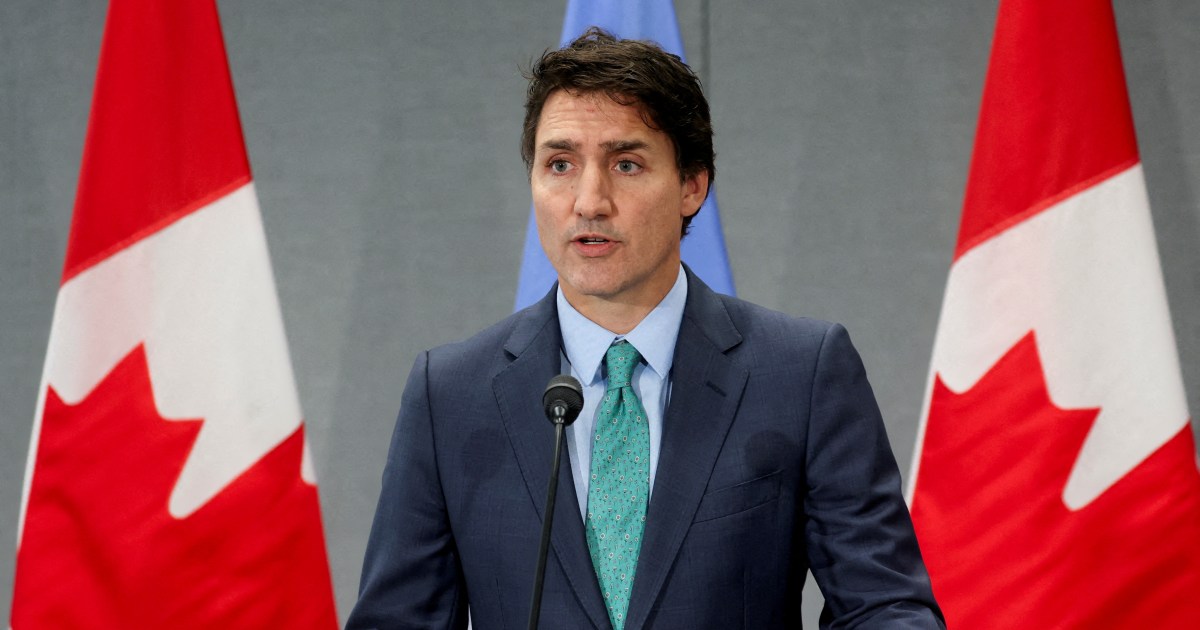Canada unveils law to force tech firms to remove ‘harmful’ content online

Prime Minister Justin Trudeau introduced the Online Harms Act and said web giants have failed to keep kids safe online.
Canada has unveiled draft legislation that would force tech platforms to quickly remove online content deemed harmful, including material that sexualises children and foments hate.
The Online Harms Act, introduced by Prime Minister Justin Trudeau’s Liberal government on Monday, would make tech companies responsible for tackling seven categories of harmful content and increase criminal penalties for spreading hate online.
Under the legislation, Canadians would be able to request the removal of content within 24 hours, subject to a review process, and file complaints against people spreading hateful speech at a human rights tribunal.
The seven categories of harm defined in the bill are intimate content communicated without consent; content that foments hatred; content that incites violent extremism or terrorism; content that incites violence; content used to bully a child; and content that induces a child to harm themselves.
The legislation would establish a new digital safety commission to enforce the standards, which also include requiring platforms to introduce features to protect children such as parental controls and safe search settings.
Trudeau said the legislation would hold tech companies accountable for harmful content they host and make online spaces safer.
“For too long, web giants have failed to keep kids safe online,” he said. “Far too often, this has had devastating consequences.”
In a statement, the government said it respected Canadians’ freedom of expression but everyone should be able to access an online environment “where they can express themselves freely, without fearing for their safety or their life”.
There was also an “urgent need for better safeguards for social media users, particularly children”, it said.
The bill will be examined by a parliamentary committee and then go to the Senate for possible revisions before it can become law.
The government’s proposals have generated fierce opposition from conservatives.
Conservative Party leader Pierre Poilievre, who has accused Trudeau of being “woke” and “authoritarian”, said last week that the government’s plans would infringe on Canadians’ freedom of expression.
“What does Justin Trudeau mean when he says… the word hate speech?” Poilievre said in remarks aired by the Canadian Broadcasting Corporation. “He means speech he hates.”
Canada’s proposals follow similar legislation in other Western countries, including the United Kingdom’s Online Safety Law, the European Union’s Digital Services Act and content moderation laws in the United States states of Florida and Texas.
Related
QUBF launches ‘Qatar-Ukraine Tech and Innovation Committee’
Dr Olga Revina, chairperson of QUBF, and Sheikh Mansoor bin Khalifa al-Thani, fou
Initiative to support digital innovation in Qatar launched
Assistant Undersecretary for Digital Industry Affairs at MCIT Reem Al Mansoori, and General Manager of Microsoft Qatar Lana Khalaf exchanging documents after s
MCIT, Microsoft Sign Partnership Initiative to Support Digital Innovation and…
As part of its efforts to enhance digital innovation and support the growth of startups in the country, the Ministry of Communications and Information Technolog
IIA Qatar hosts session on tech-driven transformation in internal audit
Officials pose during the seminar hosted by Institute of Internal Auditor Qatar Chapter. Doha, Qatar: The Institute of Internal Auditor Qatar Chapter r












